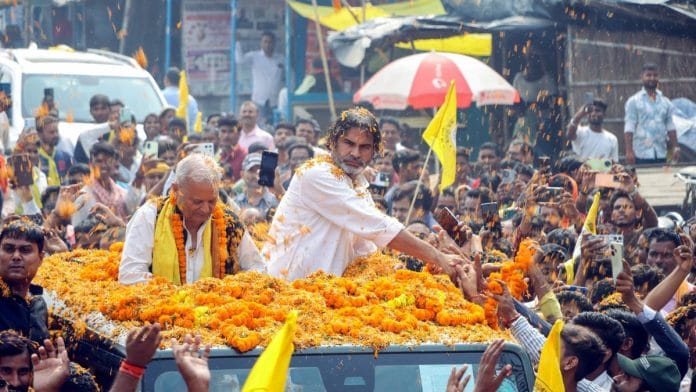Buxar/Rohtas/Lucknow: From 1985 to 1991, the front bench in Section A of each subsequent grade at the government high school in Buxar was reserved for a boy who rarely occupied it. He frequently skipped classes, yet always stood second. The boy was Prashant Kishor. Almost 34 years later, Kishor is still aiming for the top. His Jan Suraaj Party, the newest entrant in Bihar politics, is set to contest 238 of the state’s 243 seats.
His school friends say Kishor has never shied away from a challenge.
“Prashant was daring from the very beginning. Back then, when most of us wouldn’t dare skip school, he often did and still managed to remain among the top three students. I remember the fine for missing class was 10 paise per day, and he would sometimes send Rs 2.40 for an entire month’s absence. No one questioned him because he was a topper,” Kishor’s former schoolmate Pushpendu Mishra, now a private school teacher, tells ThePrint.
Ratan Kesari, another schoolmate, says Kishor would never hesitate to take chances.
“Who else would have dared to do that when Modi was at the peak of his popularity in 2015,” he asks, referring to the role Kishor played in forging the JD(U)-RJD alliance to keep BJP out of power in Bihar in 2015, after “things didn’t work out with Modi and Shah”.
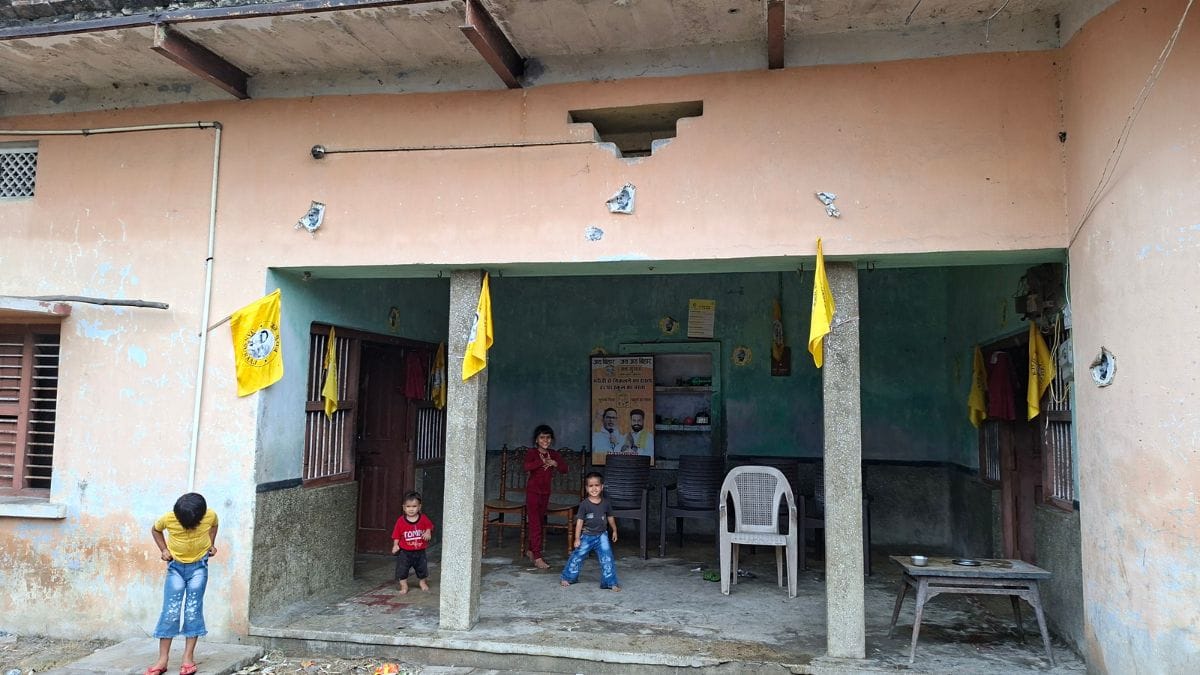
Fondly known among friends as ‘Tu-Tu Bhai’ (after his nickname Tu-Tu), Kishor was born in Shahabad district, where his father Shrikant Pandey was a doctor in a government hospital. Originally from Konar village in Rohtas, Dr Pandey was posted in Shahabad before moving to Buxar in the mid-1980s, where Prashant studied from Class 6 to high school. He later pursued intermediate studies at Patna Science College, graduating in 1993.
According to his Buxar batchmates, Kishor always had a natural knack for data. He enrolled in Delhi University to study statistics but had to return home owing to health issues. He then completed his Bachelor’s degree in Business Administration from Lucknow University.
Ratan, now a businessman in Patna, fondly remembers his school days with Prashant. “I’ve shared a close bond with Tu-Tu since our days together in Buxar. Our marks were always similar, I scored 702 in matric, and he got 705. He was ambitious by nature since the beginning. After finishing Class 10 from MP High School, he went to Patna Science College in the hope of doing something big in life, while I stayed back in Buxar for my intermediate. After that, we gradually lost touch.”
Ratan then recalls how they met again: “In 2024, when he came to Patna for a protest, I went to meet him. I had grown a big beard by then… he didn’t recognise me at first. I said, ‘Tu-Tu Bhai, pehchana (do you recognise me)?’ He first said, ‘No’, then I told him ‘Baniwa Ratan’, which is what he used to call me in school. He laughed and said, ‘Oh Ratan! I didn’t recognise you with that beard.’
“That broke the ice, and we’ve stayed in touch ever since. He is still the same stubborn and ambitious Tu-Tu, but with better vision and a bigger mission now.”
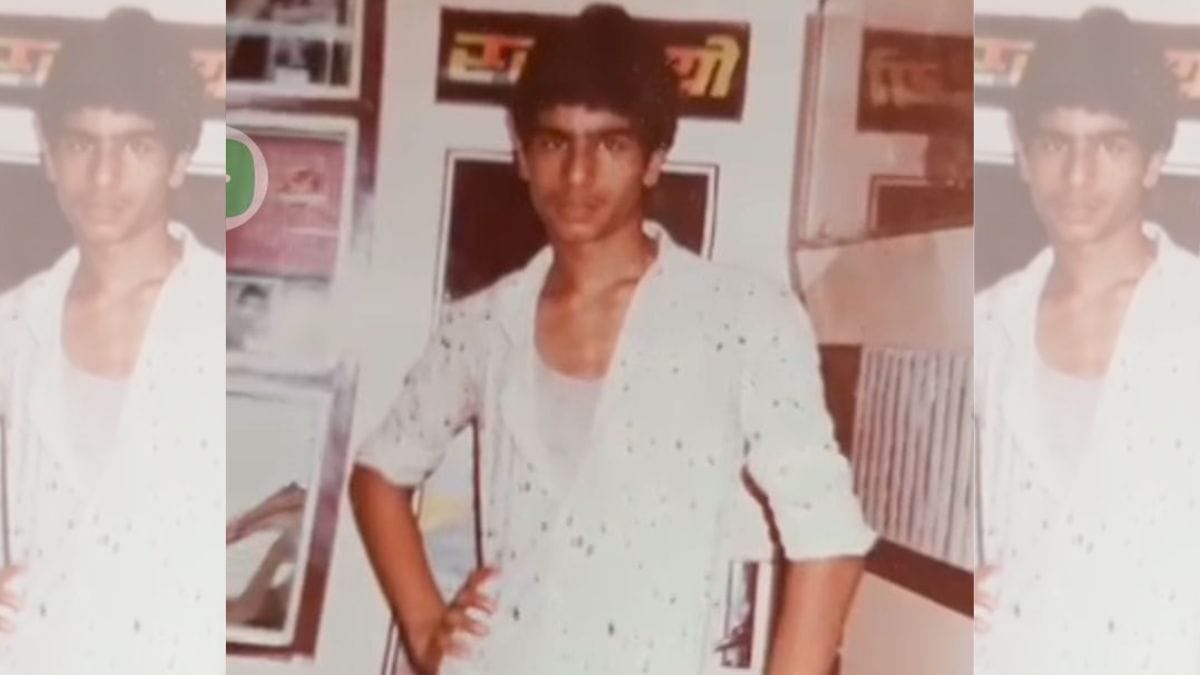
Some of Prashant Kishor’s schoolmates in Buxar have been so inspired by him that they have joined his party. One such is Amrendra Mishra.
“I joined the movement in 2022 when PK’s Padyatra began in Paschim Champaran. I’ve known Prashant for a long time. Among all our schoolmates, I probably stayed in touch with him the longest, even after we moved to Patna. I met him once in 2012 also when he was working with the Gujarat government. I was deeply influenced by his ideas and vision for change in Bihar, which is why I decided to join him. For others, he might be a well-known political figure, but for us, he’s still the same old Prashant,” says Mishra.
ThePrint reached Prashant Kishor for his side of the story via calls and messages but had not received a response by the time of publication. This report will be updated if and when a response is received.
Konar waiting for Tu-Tu
Located near the district headquarters of Sasaram, Kishor’s ancestral village Konar is still waiting for his visit. Konar village, with a population of over 6,000, is in the Kargahar Assembly constituency, and many believed he would contest elections from Konar.
However, he chose to field Bhojpuri singer Ritesh Pandey from the seat instead. Villagers remain hopeful that they will see their ‘local boy’ on polling day. In the middle of the village stands a big, old house, cared for by Kedar Pandey, a family friend. The walls are covered in Jan Suraaj posters and flags, showing the villagers’ pride in their Tu-Tu.
Kedar Pandey, the 67-year old family friend, tells ThePrint, “Prashant last visited the village in 2019 after his parents’ death, to perform the last rites. Since then, he hasn’t come, but the entire village has been waiting to see him ever since he entered politics. He spent much of his childhood in this house whenever his parents came here from town on weekends.”
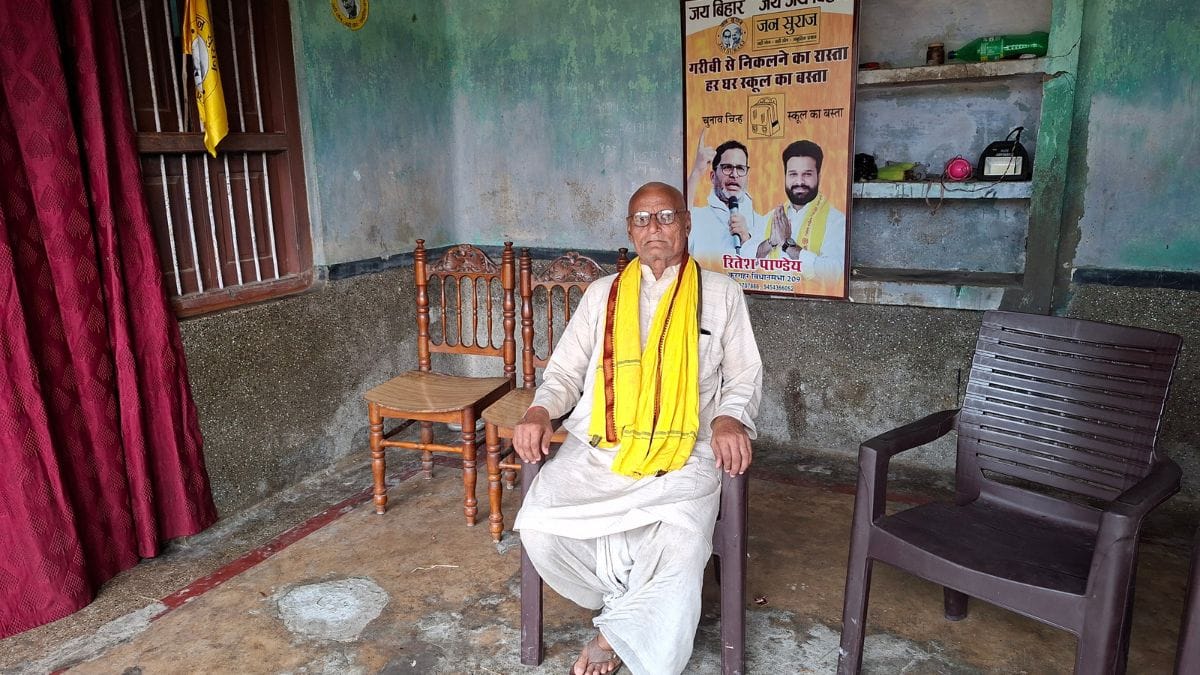
Kedar adds that Kishor’s family owned considerable farmland and a rice mill in Konar, which he now manages. “After his parents passed away, Prashant got busy with politics. His elder brother, Ajay Kishor, who lives in the NCR, visits the village once a year. Their father, Dr Shrikant Pandey, was a well-known doctor and had two sons and two daughters. Now, Prashant is the only one from the family still active in Bihar.”
Ayush, 25, who works in Delhi, visited Konar for Chhath and decided to stay back to vote.
A first-time voter, he wants to vote for change. “Biharis have so much potential, yet our state’s image is still poor in big cities. Now that Prashant Kishor is trying to bring change to Bihar, I chose to stay for a few weeks to see how this election unfolds. We’re hopeful he could become a kingmaker and do something to improve Bihar’s image,” he says.
Ramesh Pandey, Kishor’s neighbour in his ancestral village, recalls, “He (Kishor) was always ziddi (stubborn) from the beginning. Whether it was playing sports in the village or any small competition, he never accepted defeat; he always wanted to win. Those traits are visible even today. He’s determined to bring change to Bihar’s politics. Just look at him now, challenging big names like Nitish Kumar and Lalu.
“If he had to enter Rajya Sabha, he might have gone to any party, but he decided to do something for Bihar. We fully support him. We have no complaints about him not visiting the village for six years; he’s on a big mission. Jab target bada hota hai toh chhoti-chhoti shikayatein nahi rakhi jaati (when the goal is big, small complaints don’t matter).”
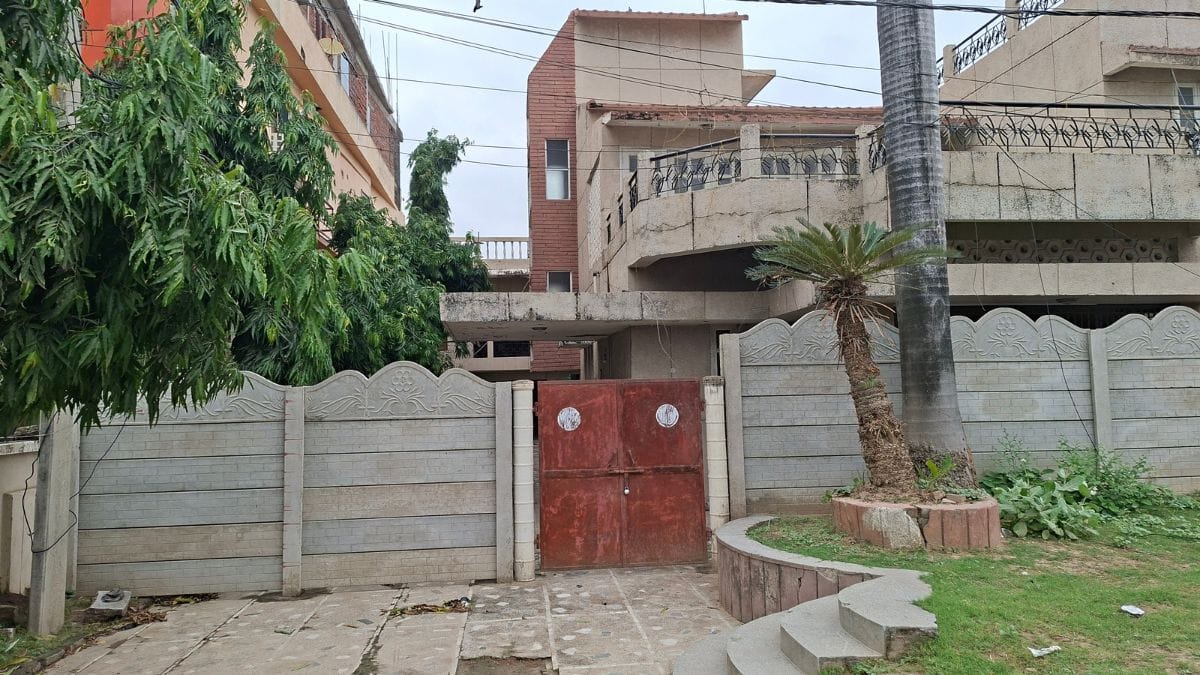
Kishor’s father was a well-known physician in Buxar. A neighbour recalls that whenever anyone from Konar visited Buxar, they would receive free treatment and even a meal at his father’s private clinic, which he set up after retiring from the government service.
A close associate of his father who did not wish to be named says Dr Shrikant Pandey was a staunch Congressman and had helped former Bihar Chief Minister Bindeshwari Dubey during his assembly elections campaign from Shahpur.
How the journey began
In the early 2000s, Kishor went to Hyderabad to pursue a Master’s degree in public health. Many of his childhood friends believe that was the starting point of his stint in public life. It was in Hyderabad that Kishor worked with the United Nations on a public health project. By his own admission, he worked with the UN for more than eight years.
One of his schoolmates, speaking to ThePrint on condition of anonymity, shares: “During the Rabri Devi government, he came to Patna for fieldwork while working on a research project related to polio. It was then that he met Jahnavi Das, a doctor by profession. They later got married, it was an inter-caste marriage, and we had heard that his parents were initially not in favour (of the marriage), but Kishor eventually convinced them.”
After completing his project in Bihar, Kishor went to Chad in Central Africa, for another health-related assignment. Upon returning to India, he began interacting with politicians.
During Rahul Gandhi’s tenure as Member of Parliament from Amethi (2004–2009), Kishor met with him to discuss ways to improve healthcare and medical infrastructure in the constituency.
Former Congress MLC and Amethi leader Deepak Singh recalls, “I remember in 2008, he came to Amethi and stayed at the Sanjay Gandhi Hospital premises, which is run by the Gandhi family’s trust. He was there to implement health-related programmes.
“One interesting incident I recall from those days is that when Sachin Tendulkar visited Amethi with Rahul Gandhi to give prizes at a local tournament, Kishor asked me to stand in front to welcome Sachin. He was very sharp even then. After working for a few weeks, he returned to Delhi.”
According to a close aide who later worked with Kishor at I-PAC (a leading political consultancy founded by Kishor), “We were never quite sure why he returned from Amethi, but we remember he once wrote an article highlighting malnutrition issues in Gujarat, which indirectly challenged the so-called ‘Gujarat Model’. The piece caught the attention of the state government. Around 2010, he met the then Gujarat chief minister and suggested ways to strengthen the state’s health infrastructure. Modi was impressed by his ideas and asked him to assist the Gujarat government.”
Over time, Kishor began offering political insights, using his strong grasp of data to shape strategies, something that further impressed Modi, who entrusted him with managing the 2012 Gujarat election campaign.
In 2013, Kishor founded ‘Citizens for Accountable Governance (CAG)’, a media and strategy organisation to formalise his work. One of the founding members explained, “The initial goal of CAG was to provide consulting services to the government on how to effectively implement policies on the ground. Many professionals from different backgrounds, including management, law, media and social work, joined us at the time.”
Turning point post 2014 Lok Sabha polls
Modi’s victory in the 2014 Lok Sabha elections also brought Prashant Kishor into the spotlight as a political strategist. He was credited with conceptualising innovative campaign ideas like Chai Pe Charcha, 3D rallies, conclaves, and social media outreach programmes.
Everything was going according to plan until a turning point in the second half of 2014, when differences reportedly emerged between Kishor and top government functionaries.
A senior political consultant who worked with him at the time says, “PK wanted CAG to serve as an advisory body to the government, one that could not only offer policy advice but also recommend corrective measures and hold officials accountable for poor performance. However, a close aide of PM Modi and some PMO officials opposed the idea of such a body, leading to delays in its formation. Frustrated by the delay, PK eventually moved on and later founded I-PAC (Indian Political Action Committee) to expand this work of political consultancy.”
After his stint with the BJP, Prashant Kishor went on to handle JD(U)’s 2015 election campaign, eventually rising to become the party’s vice president in later years.
According to senior JD(U) leader K.C. Tyagi, “It was Pavan K. Varma who introduced Prashant to Nitish ji. Pavan was a member of Rajya Sabha at that time. He once brought him (Kishor) to my residence in Delhi. We heard him out as he explained why he had parted ways with the BJP and wanted to work for the Opposition instead. Since Bihar was his home state, he wished to begin his political strategy work from there.
“Together, we planned the campaign strategy for the 2015 elections. Nitish ji soon became quite fond of him. In fact, it was Prashant who persuaded him to take the lead himself, replacing Jitan Ram Manjhi as chief minister. Earlier Nitish was not much in that favour, but later he was influenced by Kishor’s idea that only a popular face could bring in votes in the next assembly polls.”
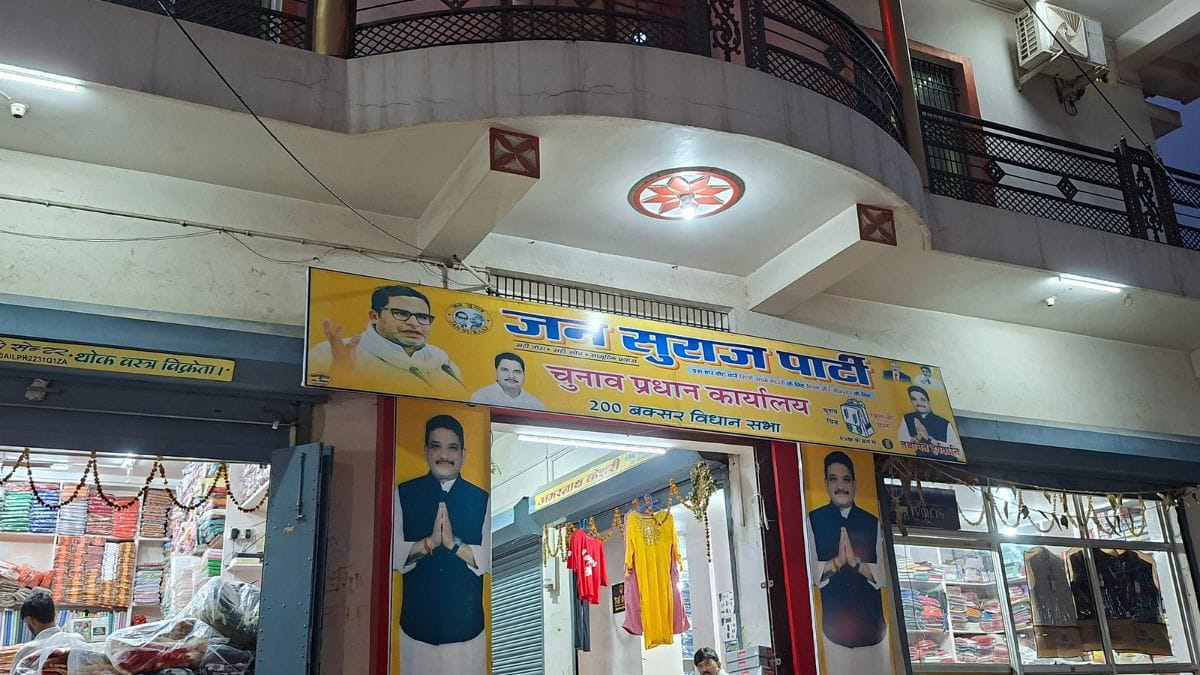
Pavan K. Varma, now the chief spokesperson of the Jan Suraaj Party, confirmed that he was the one who introduced Kishor to Nitish Kumar. “I remember getting a call from an unknown number in the second half of 2014. Normally, I don’t take such calls, but I picked it up by chance. The caller introduced himself and said he wanted to meet. I agreed, and that’s how it all began. He told me he wanted to do something for Bihar, so I arranged his meeting with Nitish ji. That’s when he started working with JD(U).”
In 2018, Kishor formally joined the JD(U), and Nitish Kumar appointed him the party’s vice president. But in 2019, he was expelled.
Varma recalls: “In 2019, both Prashant and I were expelled from the party on the same day for opposing CAA-NRC, as Nitish ji was then aligned with the NDA. Later, I briefly joined TMC when Prashant was working with them. By 2021, we both felt it was time to build a genuine political alternative for Bihar and that’s how the idea of Jan Suraaj took shape.”
According to JD(U) leader K.C. Tyagi, “Kishor always had big ambitions for Bihar since the day he joined JD(U). He genuinely wanted to do something for the state. Even after returning to his profession for a while post-expulsion, Bihar remained on his mind. He was an ambitious strategist at that time.”
After the formation of the Bihar government, Kishor continued his political consulting work. He was later approached by the Congress to handle its campaign for the 2017 Uttar Pradesh Assembly elections, a campaign that didn’t yield the desired result.
According to his former colleagues, Kishor’s overall success rate as a strategist stood above 90 percent, with governments being formed in Bihar, Andhra Pradesh, Delhi, Punjab, Maharashtra, West Bengal, and Tamil Nadu after campaigns he managed.
In May 2021, when Kishor announced his exit from political consulting, he told his team that anyone wishing to work for Bihar’s transformation could join him.
A senior I-PAC official says, “Politics and political strategy are two very different things. You can’t make political strategies professionally while being an active participant in politics yourself. That’s why Kishor parted ways with I-PAC. However, many of our colleagues who shared his vision joined him in Bihar. Kishor has no stake in I-PAC anymore.”
Functionaries in Jan Suraaj are well aware of Prashant Kishor’s stubborn nature, but say his determination to change Bihar continues to inspire them.
“I first met Prashant Kishor in 2012 in Gujarat. At that time, I was associated with the BJP and often travelled to Gujarat for business meetings. I met him at the Chief Minister’s Office, and we spoke briefly about Bihar’s politics. After that, we stayed in touch through messages for a few years but never met again. He followed his own path, and I followed mine,” says Mithlesh Pathak, who now oversees the Shahbad region for Jan Suraaj.
He adds, “I was hoping for a BJP ticket from Buxar for the 2024 Lok Sabha elections, but when that didn’t happen, Jan Suraaj reached out and offered me the position of in-charge for the Shahbad region. When I met Prashant again about a year ago, he immediately recalled our 2012 meeting. That shows how sharp his memory is. He’s deeply committed to bringing change in Bihar, and that’s what motivated me to join his mission.”
Ras Bihari Lal, a Jan Suraaj supporter from Konar, declares that in Bihar politics today, you simply can’t ignore the PK factor. “No matter which constituency you visit, people are talking about Jan Suraaj. Whether Tu-Tu’s party wins or not, everyone acknowledges his presence. This recognition is the result of his hard work over the past three years. It took Nitish and Lalu many years to become tall leaders, Tu-Tu can achieve that kind of success in the coming years too and we want him to return to the village after achieving his aim.”
Similarly, Pushpendu Mishra, one of Kishor’s schoolmates who hasn’t met him in the last 34 years is ready to wait. According to him, “We recently celebrated the 138th foundation day of MP High School on 1 September with a reunion. For the occasion, we created a WhatsApp group called ‘138 Saal Bemisaal’. Prashant wasn’t formally invited, as we assumed he must be busy with his campaign and we did not want to disturb him, but we’re hopeful that he’ll join us as a special guest at the next reunion.”
(Edited by Viny Mishra)
Also read: Why PK decided not to contest Bihar polls, and what it means for Jan Suraaj & its rivals



